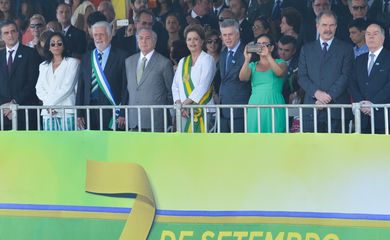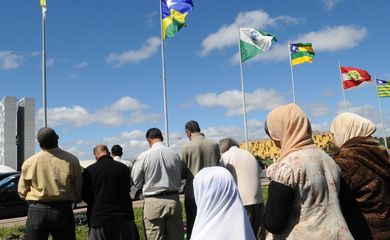NGO teaches Portuguese to refugees in São Paulo


Frei David Santos 

The non-governmental organization Educafro started on Tuesday (Sep. 8) in São Paulo the basic Portuguese classes for the fifth group of foreign refugees living in the city. Students are mostly African.
Classes are taught on Friday and last for three and a half hours each. The course focuses on everyday vocabulary and is designed to provide foreigners with autonomy.
“Their biggest challenge is employment. And Portuguese is the tool for entering the labor market,” said Educafro chairman Friar David dos Santos during an interview at the NGO's headquarters, in downtown São Paulo. For this reason, leaving the course often implies an early success. “They have no choice when the first job opportunity pops up: if they have to choose between coming to class or go to work, they simply have to go to work,” he explains.
Political persecution and war, Friar dos Santos believes, are the main reasons why refugees leave their countries. There are also a large number of foreigners who leave their place of origin due to a tough economic situation. “For us, the number of brothers running away from hunger is really alarming,” he remarked.
Afraid of being arrested, Nick Trusti, 30, was forced to leave Congo-Brazzaville two years ago. “I tried to protect some of the foreigners, because they're kicking out all the foreigners there. I was threatened and they wanted to arrest me. I ran away,” he recounted. According to the refugee, the political scenario is terrible, and marked by threats and abuse of all kinds. “There's no law there,” he summed up.
Now, Nick says he is only waiting until his Brazilian employment registration book is issued before he starts job hunting. “[I'd pick] anything so I could pay for a house to live in,” he said. The Congolese man, however, complained about the lack of support from the Brazilian government: “The Brazilian government should help the Africans who come here. They need documents in order to be integrated and work. It's a long way here from Africa. If someone comes over, it's because they need help.”
For Friar David, support and advice should be offered so refugees could have access to basic services, especially those who come from African countries. “There's no counseling for refugees and migrants who need to have access to the Brazilian health care system. And since employees are not trained for that kind of reception, refugees and migrants are very poorly served by public health care units,” he says.
The activities of terrorist group Boko Haram were the main reason for trader Samuel Chukwwica to leave Nigeria. “Boko Haram was killing people everywhere. So I left my country for safety,” he explained. Samuel, 35, said he chose Brazil partly because of what football had taught him about the country: “Brazil is a country I've liked ever since I was a child.”
As soon as he becomes proficient in Portuguese, Samuel hopes to be able to resume his studies and earn a master's degree in Political Science: “I've got nothing yet, because of the language barrier. That's why I'm here to improve my Portuguese. Without [mastering] the language, you can't do anything. Language is power.”
Translated by Fabrício Ferreira
Fonte: NGO teaches Portuguese to refugees in São Paulo




